Table Of Content
- Recognizing Signs of Medical Emergencies
- Recognizing Symptoms
- Acting Quickly
- Preventive Measures
- Essential First Aid Kit for Camping
- Treatment Essentials
- Emergency Tools
- Additional Tips
- Common Injuries and Illnesses During Hikes
- Recognizing Signs of Medical Emergencies
- Essential First Aid Kit for Camping
- Hiker Safety and Emergency Response
- Performing CPR and Basic Life Support in the Wilderness
- Being Prepared for Medical Emergencies
- Camping Medical Tips
- Hiker Safety
- Emergency Response
- Dealing with Cuts, Scrapes, and Bruises Outdoors
- Swift Action Saves the Day
- Preparedness is Key
- Handling Medical Emergencies in the Wilderness
- Preventive Measures for Food Poisoning and Dehydration
- Hydrate, Hydrate, Hydrate!
- Food Safety
- Managing Allergic Reactions and Insect Bites in the Wild
- Recognizing Signs of Medical Emergencies
- Camping Medical Tips
- Hiker Safety and Emergency Response
- Utilizing Navigation Tools for Emergency Response
- Stay on Course with GPS Devices
- Master the Art of Map Reading
- Signal for Help with Emergency Beacons
- Establishing a Communication Plan for Group Safety
- Designate a Team Leader
- Use Two-Way Radios or Whistles
- Establish Check-In Times
- Create Emergency Contact Cards
- Develop Signal Codes
- Frequently Asked Questions (FAQs)
Welcome, outdoor enthusiasts! As we embark on our adventures in the great outdoors, it’s essential to prioritize our safety and well-being. One crucial aspect of camping and hiking is being prepared for any medical emergencies that may arise during our journey. Handling these situations effectively can make all the difference in ensuring a positive outcome.
Whether you are a seasoned camper or new to the wilderness, having the necessary knowledge and skills to respond in case of a medical emergency is vital. In this blog post, we will delve into essential camping medical tips and hiker safety practices that can help you navigate through unforeseen challenges with confidence.
From basic first aid techniques to understanding how to signal for help in remote areas, being well-versed in emergency response can be a lifesaver. We’ll explore the importance of carrying a well-stocked first aid kit, knowing how to assess injuries, and when to seek professional medical assistance.
Our goal is to empower you with the tools and information needed to stay safe and secure during your outdoor excursions. By taking proactive measures and being prepared for any situation, you can enjoy your camping experiences with peace of mind, knowing that you are equipped to handle whatever comes your way.
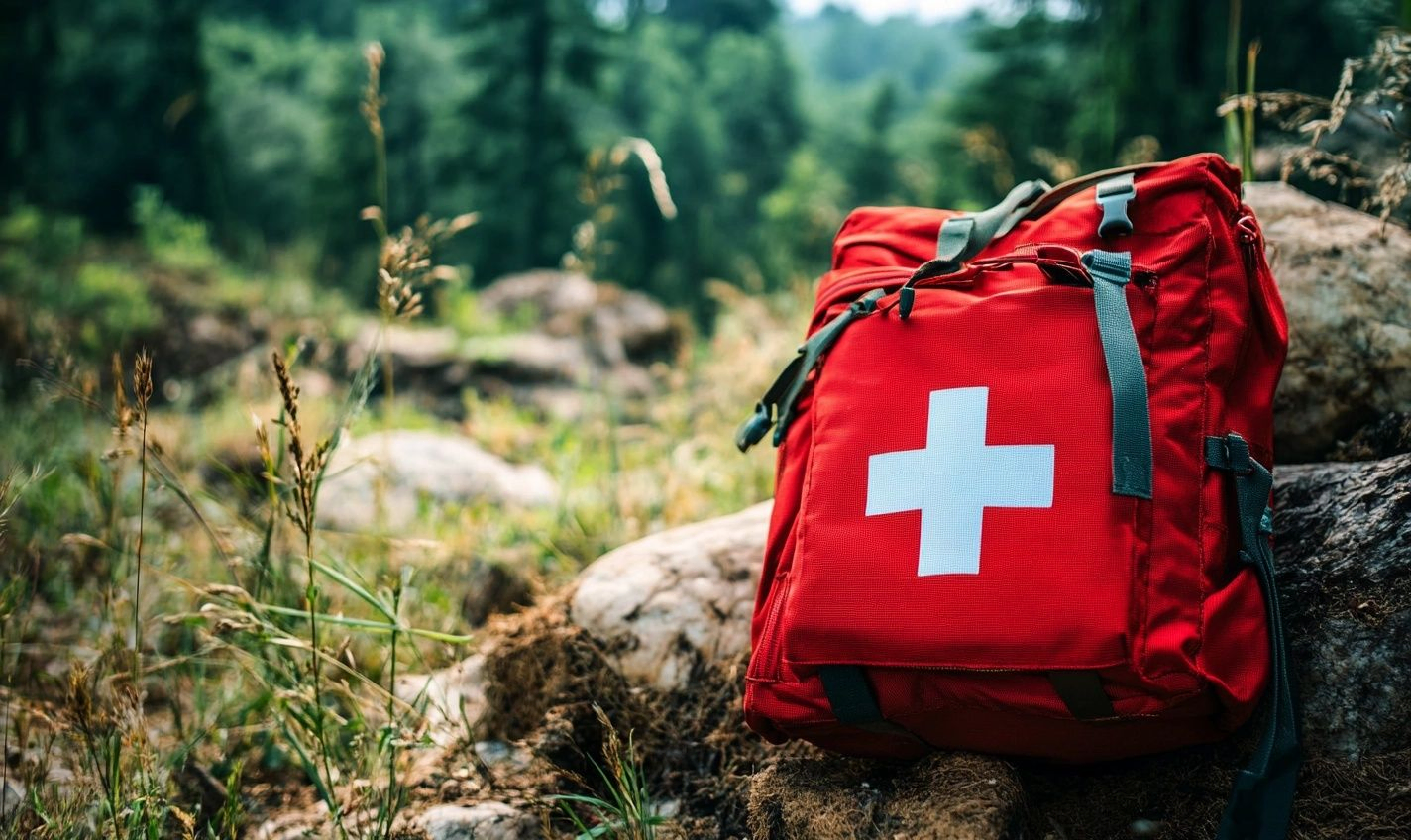
Recognizing Signs of Medical Emergencies
When embarking on a camping trip or hiking adventure, being prepared for any medical emergencies that may arise is crucial. Camping medical tips can help you handle unexpected situations effectively. Here are some essential guidelines for hiker safety and emergency response:
Recognizing Symptoms
- Watch out for symptoms like dizziness, shortness of breath, chest pain, severe headaches, and confusion.
- Pay attention to signs of dehydration such as extreme thirst, dry mouth, and dark urine.
- Be alert for allergic reactions like swelling, rashes, difficulty breathing, and rapid heartbeat.
Acting Quickly
- Don’t ignore unusual symptoms; seek medical help or contact emergency services immediately.
- Ensure the person experiencing the medical emergency is comfortable and stays calm.
- Administer any necessary first aid while waiting for professional help to arrive.
Preventive Measures
- Stay hydrated, well-fed, and avoid overexertion to minimize the risk of medical emergencies.
- Pack essential medications and a well-equipped first aid kit tailored to your specific needs.
- Inform your hiking companions about any underlying medical conditions or allergies you have.
And remember, being proactive and prepared can make all the difference when handling medical emergencies in the great outdoors. Stay vigilant, stay safe.
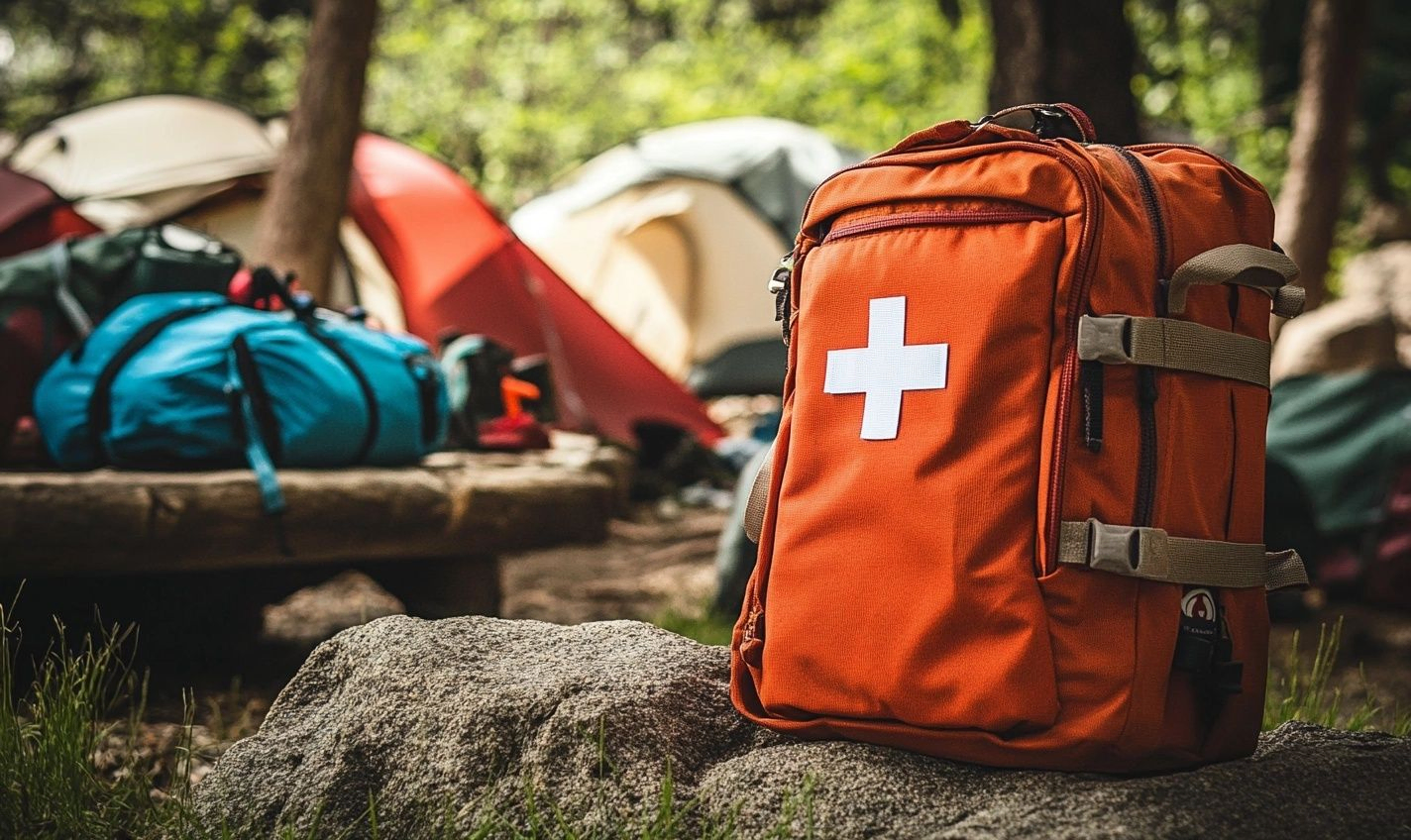
Essential First Aid Kit for Camping
When heading out into the great outdoors, having the right first aid kit can be a lifesaver. Here are some must-have items to include in your camping medical kit:
Treatment Essentials:
- Adhesive bandages (various sizes)
- Gauze pads and rolls
- Antiseptic wipes
- Antibiotic ointment
- Medical tape
Emergency Tools:
- Tweezers (for splinters and ticks)
- Scissors
- Thermometer
- Instant cold packs
- Emergency blanket
Remember, your first aid kit is only as good as your ability to use it correctly. Consider taking a basic first aid training course to ensure you can handle medical emergencies confidently.
Additional Tips:
Replenish any used or expired items after each trip. Inspect your kit regularly to make sure everything is in good condition and ready for use when needed.
Keep your first aid kit in an easily accessible and waterproof container. Store it in a central location within your camping gear so everyone in your group knows where to find it in case of an emergency.
Just like a compass guides you through the wilderness, your first aid kit is your compass in handling medical emergencies while camping. Preparedness is key in ensuring a safe and enjoyable outdoor adventure.
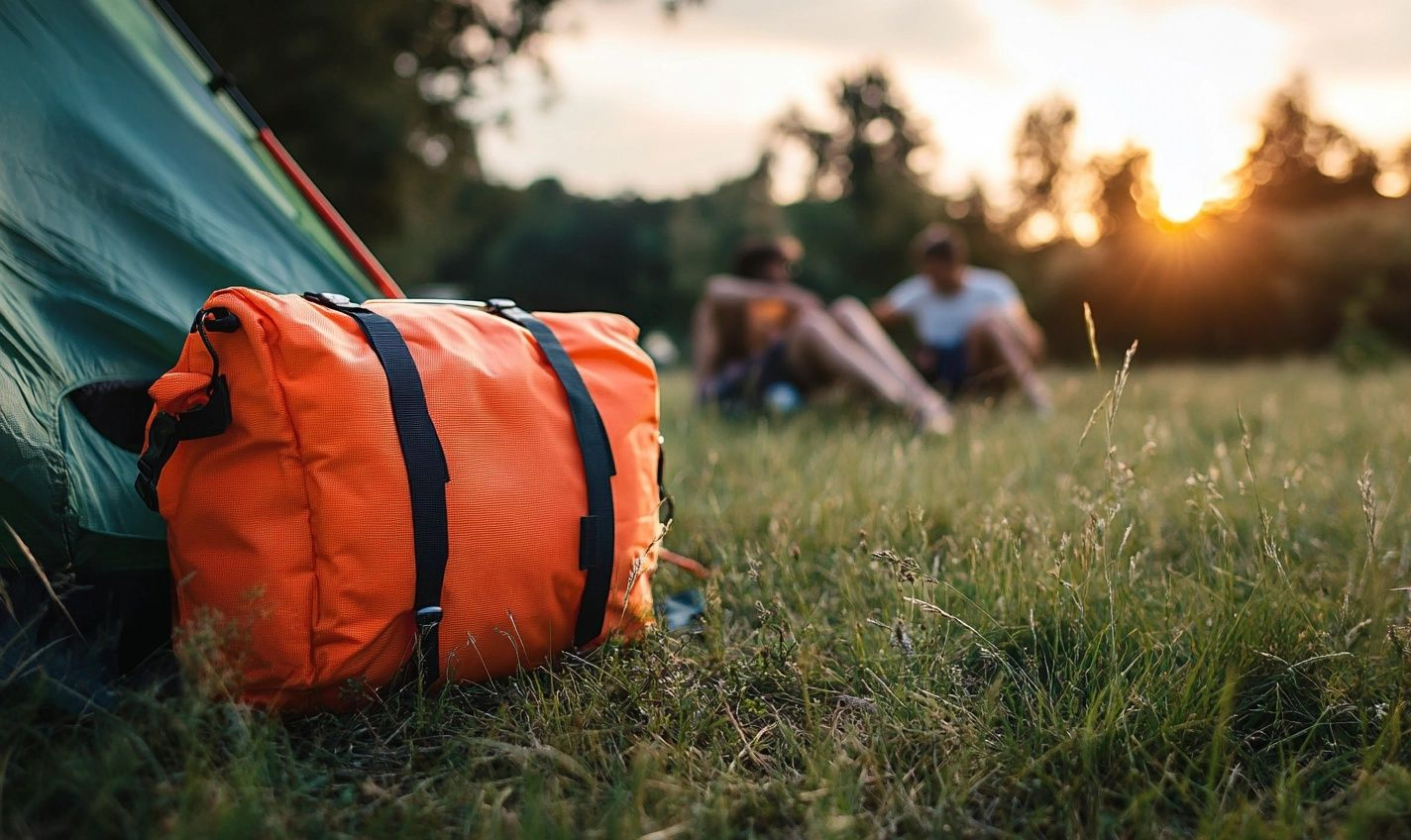
Common Injuries and Illnesses During Hikes
Heading out into the wild for a refreshing hike is an exhilarating experience, but it’s essential to be prepared for any medical emergencies that may arise. Let’s discuss some camping medical tips to keep you safe and sound on your outdoor adventures.
Recognizing Signs of Medical Emergencies
But what exactly should you look out for? Be wary of symptoms like extreme fatigue, dizziness, difficulty breathing, severe pain, or sudden changes in mental status. And remember, always trust your gut feeling.
Essential First Aid Kit for Camping
Having the right supplies can make all the difference in handling medical emergencies. Your kit should include bandages, antiseptic wipes, pain relievers, and any personal medications. But most importantly, make sure you know how to use each item.
Hiker Safety and Emergency Response
While enjoying nature’s beauty, it’s crucial to prioritize safety. Stick to marked trails, avoid risky shortcuts, and inform someone trustworthy about your itinerary. In the event of an emergency, quick and informed action is key.
But what about emergency response in remote areas? Utilize navigation tools like GPS devices, maps, and compasses to pinpoint your location accurately. Knowing where you are can significantly expedite rescue efforts.
And when it comes to personal and group safety, establishing a communication plan is paramount. Ensure everyone knows how to call for help, designate meeting points, and share emergency contacts within the group.
However, despite our best efforts, accidents can happen. Understanding hiker safety protocols and being prepared for the unexpected can ultimately save lives in critical situations.
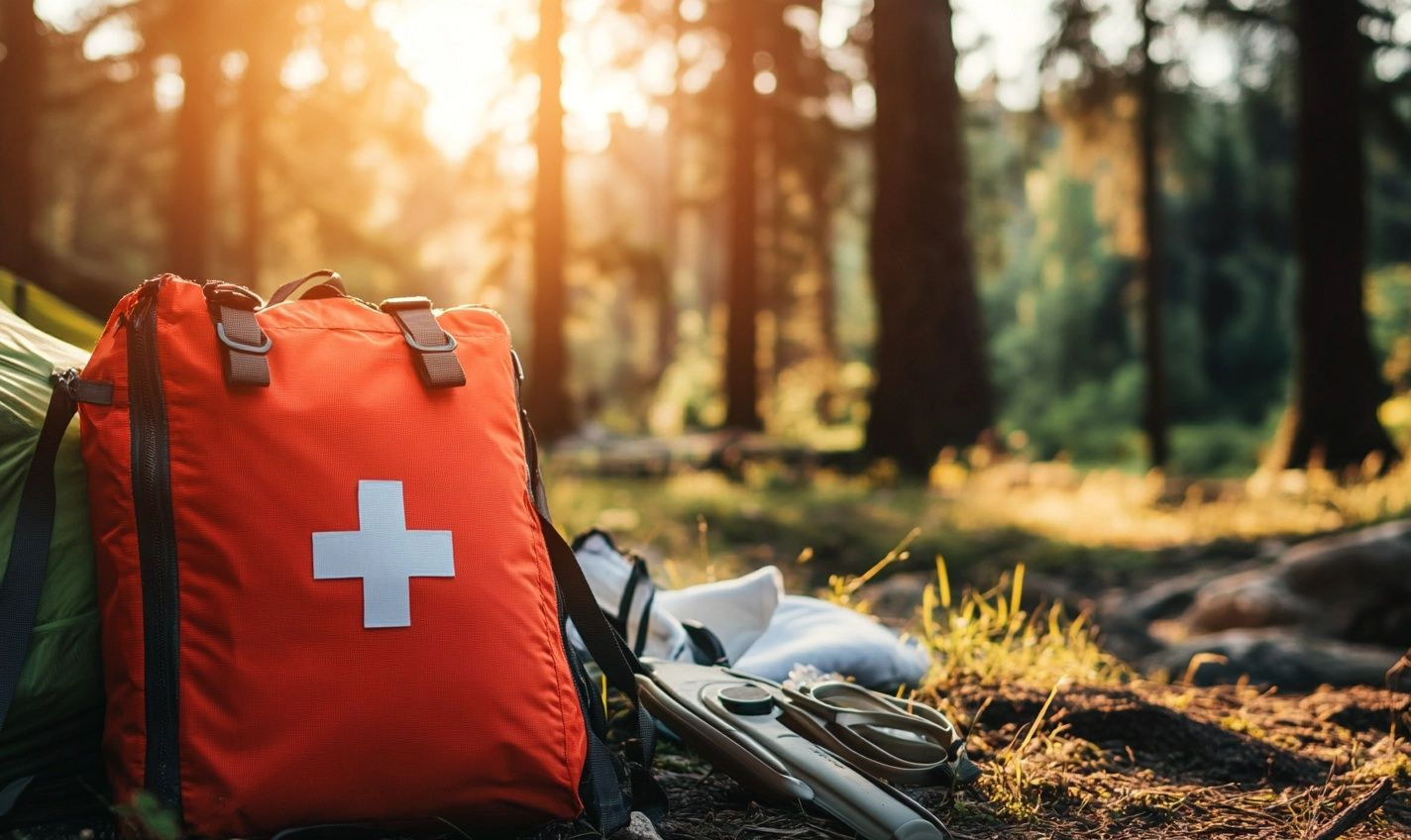
Performing CPR and Basic Life Support in the Wilderness
Being Prepared for Medical Emergencies
When you’re out in the wild, it’s crucial to be prepared for any kind of medical emergency that might occur. Whether you’re hiking through rugged terrain or enjoying a peaceful camping trip, accidents can happen at any moment. Knowing how to handle medical emergencies can make all the difference in saving a life.
Camping Medical Tips
Having a basic understanding of first aid is essential for any outdoor enthusiast. From treating minor cuts and scrapes to dealing with more serious injuries, being equipped with the right knowledge and supplies can ensure a safe and enjoyable trip.
Hiker Safety
One of the most critical aspects of hiker safety is knowing how to respond in case of a medical emergency. Whether you’re facing a sudden illness or a traumatic injury, quick and appropriate actions can be life-saving.
Emergency Response
During camping or hiking trips, knowing how to perform CPR and basic life support can mean the difference between life and death. In remote wilderness areas, professional medical help may be hours away, making it essential for fellow hikers to step in and provide immediate care.
- Ensure the area is safe before approaching the victim
- Check the victim’s responsiveness and breathing
- Begin CPR if necessary, following the guidelines you’ve learned
- Start with 30 chest compressions
- Give two rescue breaths
- Continue CPR until help arrives
Remember, staying calm and acting swiftly can make a world of difference in emergency situations. By being prepared and knowledgeable, you can help ensure the safety and well-being of yourself and your fellow outdoor enthusiasts.
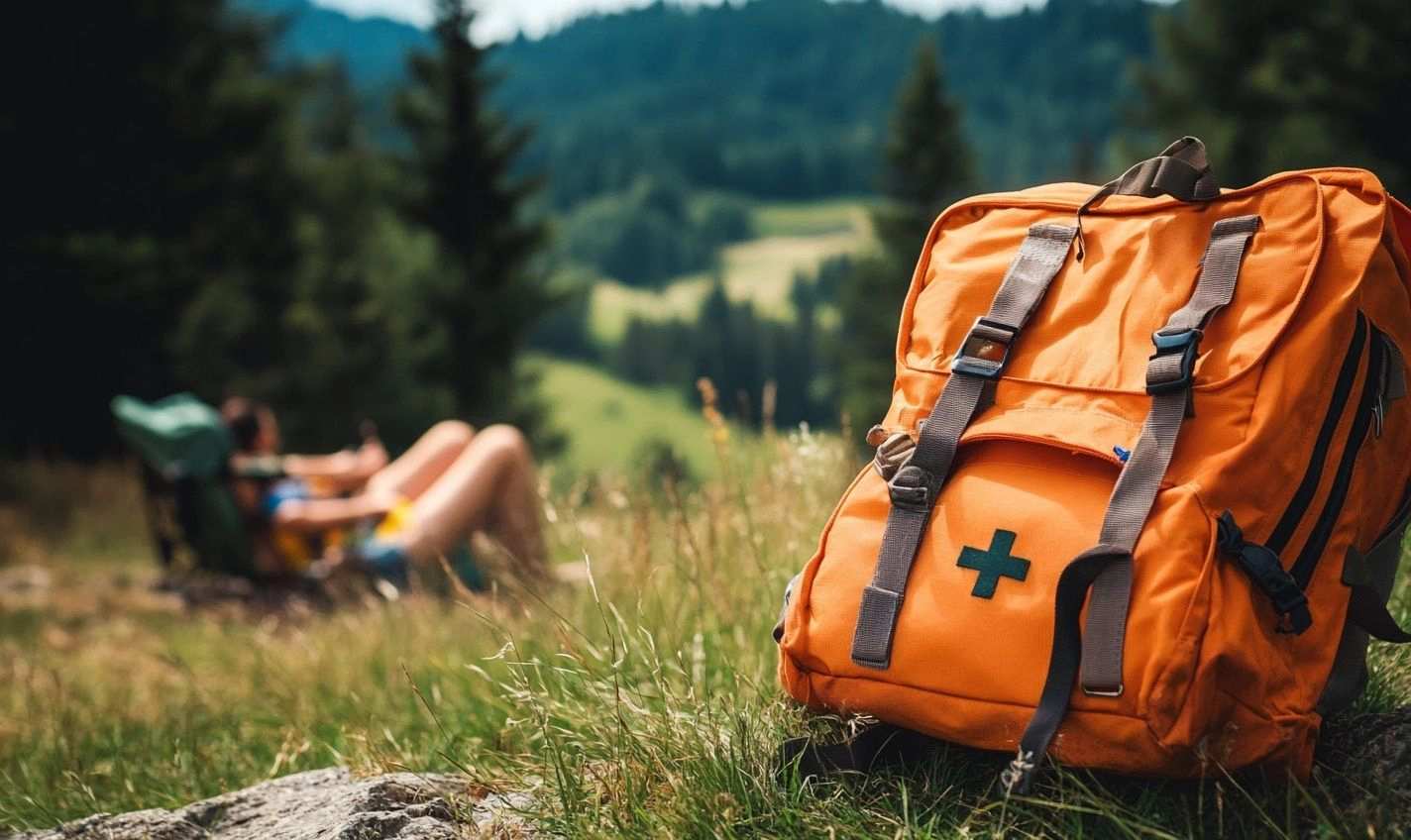
Dealing with Cuts, Scrapes, and Bruises Outdoors
When you’re out in the wilderness, enjoying the great outdoors, bumps, cuts, and scrapes are part and parcel of the experience. But fear not! With a few simple camping medical tips, you can handle these minor injuries like a pro and keep the adventure going strong.
Swift Action Saves the Day
Even small cuts or scrapes can become problematic if not dealt with promptly. So, what should you do when faced with a minor injury?
- Wash the wound with clean water and soap to prevent infection.
- Apply an antiseptic cream and cover the wound with a bandage to protect it.
- Keep the injured area elevated to reduce swelling and promote faster healing.
Preparedness is Key
Ensuring you have the necessary supplies in your Essential First Aid Kit for Camping can make all the difference in a medical emergency. What should you have on hand for cuts and scrapes?
- Adhesive bandages in various sizes.
- Gauze pads and medical tape for larger wounds.
- Antiseptic wipes to clean the area before dressing the wound.
Handling Medical Emergencies in the Wilderness
While most cuts and scrapes can be easily managed, there may be instances when more serious medical attention is required. How can you stay prepared for unexpected situations?
- Brush up on hiker safety by knowing basic first aid techniques.
- Learn how to identify signs of infection or severe allergic reactions.
- Establish an emergency response plan with your camping group for quick action.
Remember, proper preparation and quick action are vital when it comes to emergency response and staying safe in the outdoors.
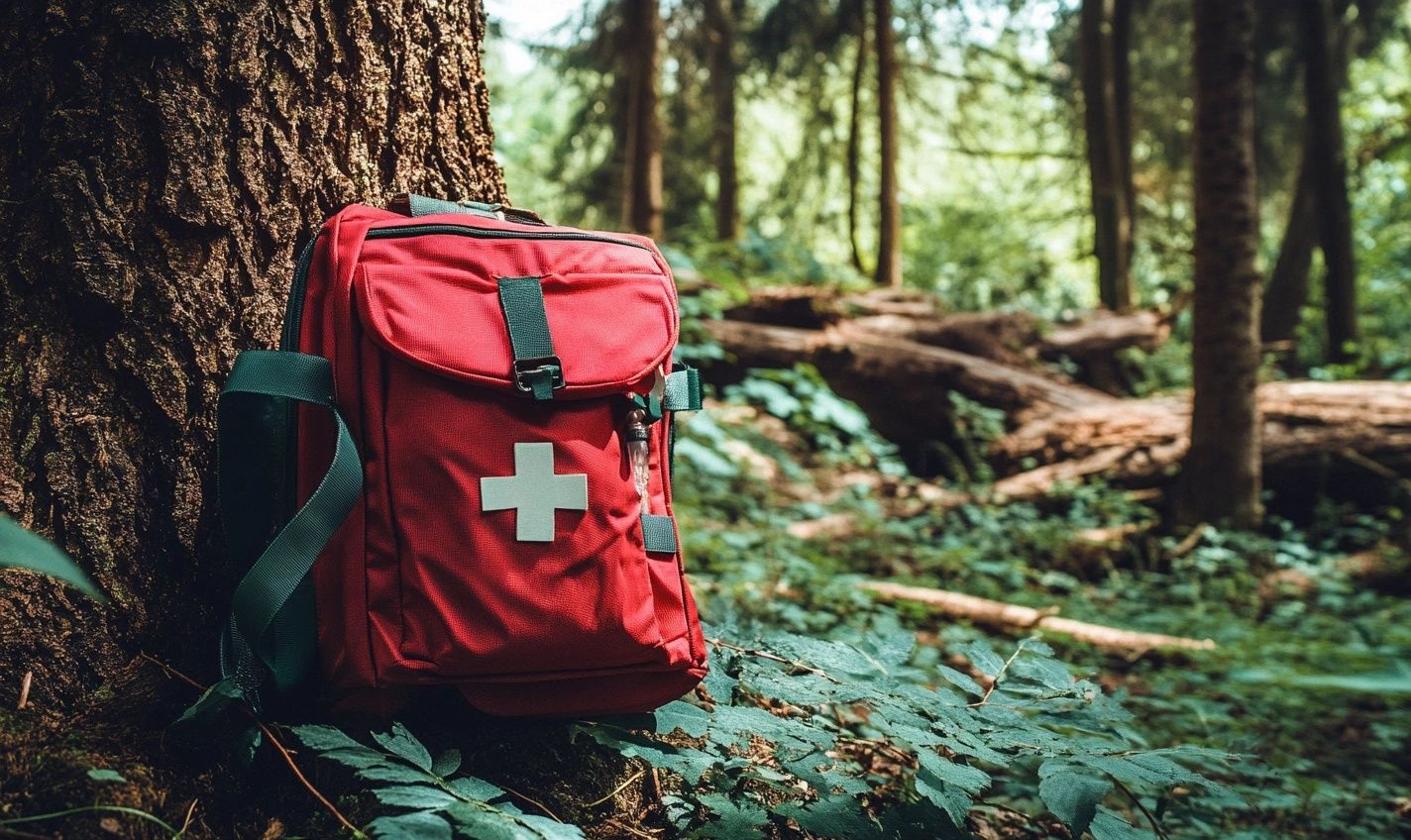
Preventive Measures for Food Poisoning and Dehydration
When heading into the great outdoors, one of the most critical aspects of ensuring hiker safety is taking preventive measures against potential medical emergencies. Let’s dive into some essential camping medical tips to help you stay safe and sound during your outdoor adventures!
Hydrate, Hydrate, Hydrate!
Dehydration is a common concern when camping or hiking, especially in hot weather. Make sure to drink plenty of water and consider these tips:
- Carry an adequate supply of water and a portable filtration system for refills.
- Avoid sugary drinks or alcohol that can dehydrate you further.
- Monitor your urine color – clear or light yellow indicates good hydration.
Food Safety
Food poisoning can quickly turn a fun camping trip into a nightmare. Take these precautions to prevent gastrointestinal issues:
- Keep raw meats separate from other foods and cook them thoroughly.
- Wash your hands and cooking utensils frequently, especially before handling food.
- Store perishable foods in a cooler with ice packs to prevent spoilage.
Remember, your health and well-being are the top priorities, so being proactive in handling medical emergencies can make a significant difference in emergency response situations.
Managing Allergic Reactions and Insect Bites in the Wild
Exploring the great outdoors is a thrilling adventure, but it’s essential to be prepared for any medical emergencies that may arise during your camping or hiking trip. Knowing how to handle allergic reactions and insect bites can make a significant difference in ensuring a safe and enjoyable experience in the wild.
Recognizing Signs of Medical Emergencies
Understanding the signs of allergic reactions and insect bites can help you respond promptly and appropriately. Look out for symptoms such as:
- Hives or rash
- Swelling of the face, lips, or throat
- Difficulty breathing
- Dizziness or lightheadedness
Camping Medical Tips
When it comes to handling allergic reactions and insect bites in the wild, here are some important tips to keep in mind:
- Carry an EpiPen if you have known allergies
- Wear long sleeves and pants to minimize skin exposure
- Apply insect repellent to prevent bites
- Inspect your surroundings for nests or hives
Hiker Safety and Emergency Response
Your safety and preparedness can determine the outcome of a medical emergency while camping or hiking. Here’s how you can ensure hiker safety:
- Inform others of your hiking route and expected return time
- Learn basic first aid and CPR techniques
- Have a well-stocked first aid kit on hand
Remember, prevention is key when it comes to managing allergic reactions and insect bites in the wild. Stay vigilant, stay prepared, and most importantly, prioritize your safety and the safety of your fellow adventurers. With the right knowledge and tools, you can navigate through any medical emergency that comes your way.
Utilizing Navigation Tools for Emergency Response
When venturing into the great outdoors, it’s crucial to be prepared for any unforeseen circumstances, especially when it comes to handling medical emergencies. Proper navigation skills can be a lifesaver in such situations, allowing you to swiftly respond to emergencies and get the necessary help. Let’s explore how you can effectively use navigation tools for emergency response.
Stay on Course with GPS Devices
GPS devices are essential for pinpointing your exact location in case of emergencies. By marking waypoints along your route and familiarizing yourself with the device’s functions, you can quickly share your coordinates with rescue teams for a timely response.
Master the Art of Map Reading
Carrying a detailed topographic map and compass is invaluable for navigating unfamiliar terrain. Learning how to interpret contour lines and orient yourself using prominent landmarks can be a game-changer during emergency situations where technology may fail.
Signal for Help with Emergency Beacons
Emergency beacons, such as Personal Locator Beacons (PLBs) or Satellite Messengers, can be a lifeline when you’re out of cellphone range. By activating these devices and ensuring they have a clear line of sight to the sky, you significantly increase your chances of a successful emergency response.
In conclusion, honing your navigational skills before embarking on any outdoor adventure is as important as packing your first aid kit. Remember, being prepared is the key to safety, especially when it comes to handling medical emergencies and ensuring hiker safety. Stay informed, stay equipped, and most importantly, stay safe out there!
Establishing a Communication Plan for Group Safety
When venturing into the great outdoors, having a solid communication plan in place is crucial for ensuring the safety of everyone in your group. Camping medical tips often emphasize the importance of being prepared for any medical emergencies that may arise and having a plan to respond effectively. Here are some essential tips for establishing a communication plan for group safety:
Designate a Team Leader
Appoint a team leader responsible for overseeing communication within the group. This individual should be reliable, organized, and familiar with emergency procedures.
Use Two-Way Radios or Whistles
Equip each member of the group with two-way radios or whistles to communicate in case of an emergency. These tools can help signal for help and stay connected in remote areas.
Establish Check-In Times
Set specific check-in times throughout the day where each member contacts the group leader to confirm their location and well-being. This ensures that everyone is accounted for and safe.
Create Emergency Contact Cards
Prepare laminated emergency contact cards for each individual in the group with essential information such as medical conditions, allergies, and emergency contact numbers. Keep these cards easily accessible at all times.
Develop Signal Codes
Agree on signal codes or gestures that indicate different levels of urgency or specific needs. This non-verbal communication can be crucial in noisy or distant situations.
Remember, hiker safety relies heavily on effective communication and timely response to emergencies. By establishing a communication plan for group safety, you are taking proactive steps to ensure a smooth and secure outdoor experience for everyone involved.
Conclusion
As outdoor enthusiasts, it is important to prioritize safety while camping or hiking. By being prepared with the right knowledge and tools, you can handle medical emergencies effectively. Remember to always pack a first aid kit, inform others of your itinerary, and familiarize yourself with basic medical procedures.
For hiker safety, knowing emergency response protocols and basic wilderness navigation skills can be invaluable. Stay calm, assess the situation, and seek help when needed. Quick thinking and proper preparation can make a significant difference in emergency situations.
Always be aware of your surroundings, weather conditions, and personal limitations. Trust your instincts and take necessary precautions to prevent accidents. By following these camping medical tips and prioritizing safety, you can enjoy the great outdoors with peace of mind.
Stay safe, stay informed, and be prepared for any situation that may arise. Your well-being and that of your fellow campers should always be the number one priority. With the right skills and mindset, you can handle medical emergencies confidently and ensure a memorable and safe outdoor experience.
Frequently Asked Questions (FAQs)
Q: What should I do in case of a medical emergency while camping or hiking?
A: In case of a medical emergency, it is crucial to stay calm and assess the situation. If possible, call for emergency services immediately. Provide first aid if you are trained to do so.
Q: Are there specific camping medical tips I should be aware of?
A: It’s essential to carry a first aid kit with basics like bandages, antiseptic wipes, pain relievers, and any necessary personal medications. Stay hydrated and be aware of any allergies or medical conditions within your group.
Q: How can I ensure hiker safety during a camping trip?
A: Prioritize safety by sticking together as a group, informing someone of your itinerary, keeping an eye on the weather forecast, and carrying communication devices like a fully charged phone or a satellite communicator.
Q: What are the key steps in handling medical emergencies in remote camping locations?
A: Stay prepared by knowing the potential risks in the area, having a plan for emergencies, and ensuring at least one person in your group is well-versed in first aid and CPR.

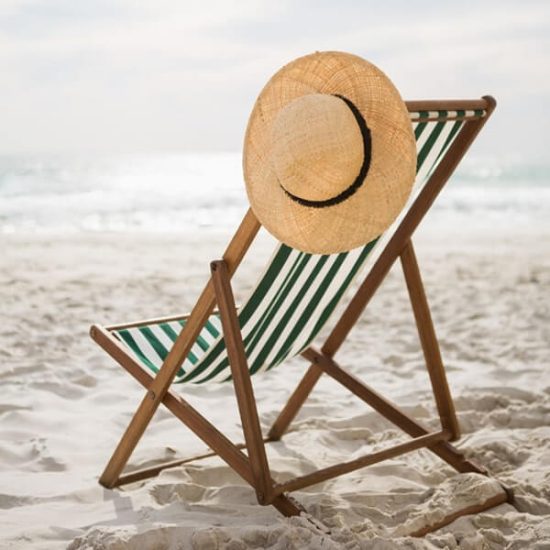
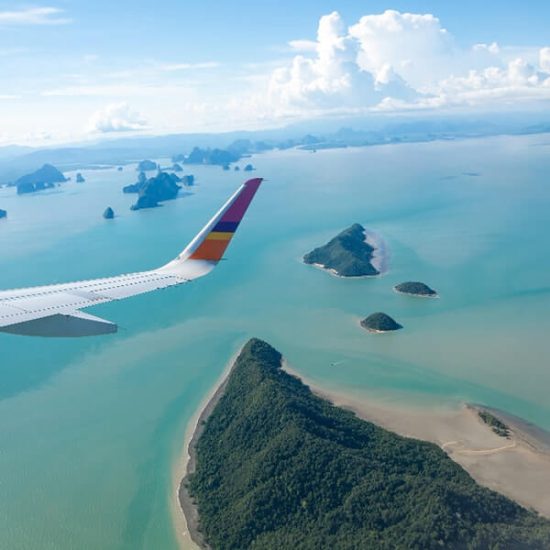

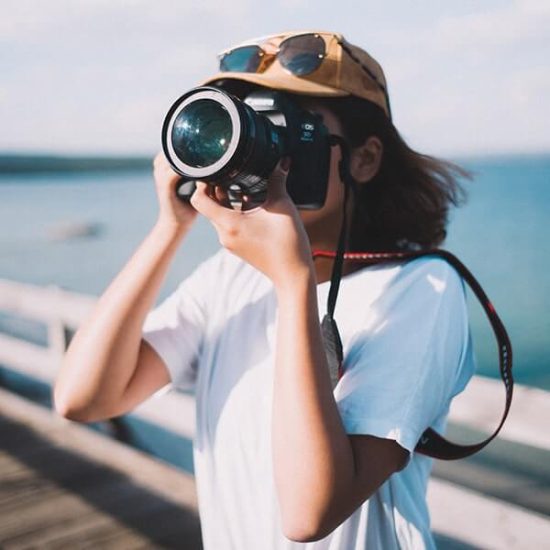
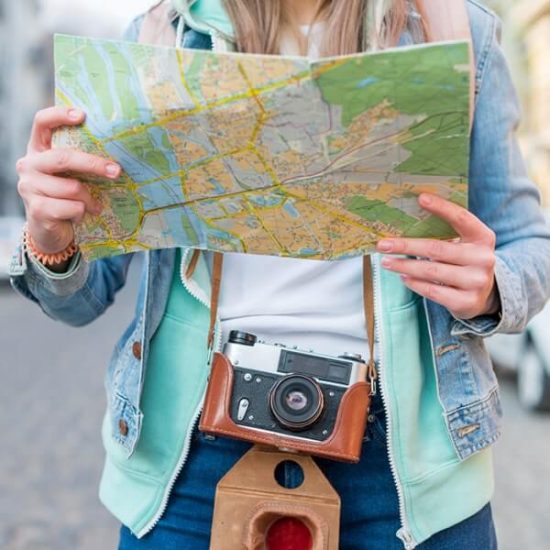
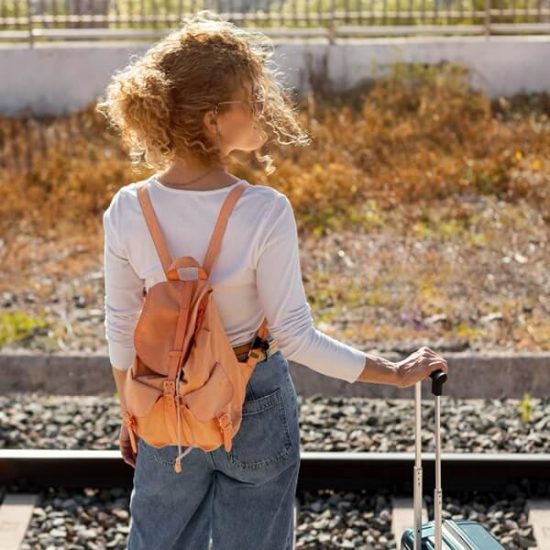
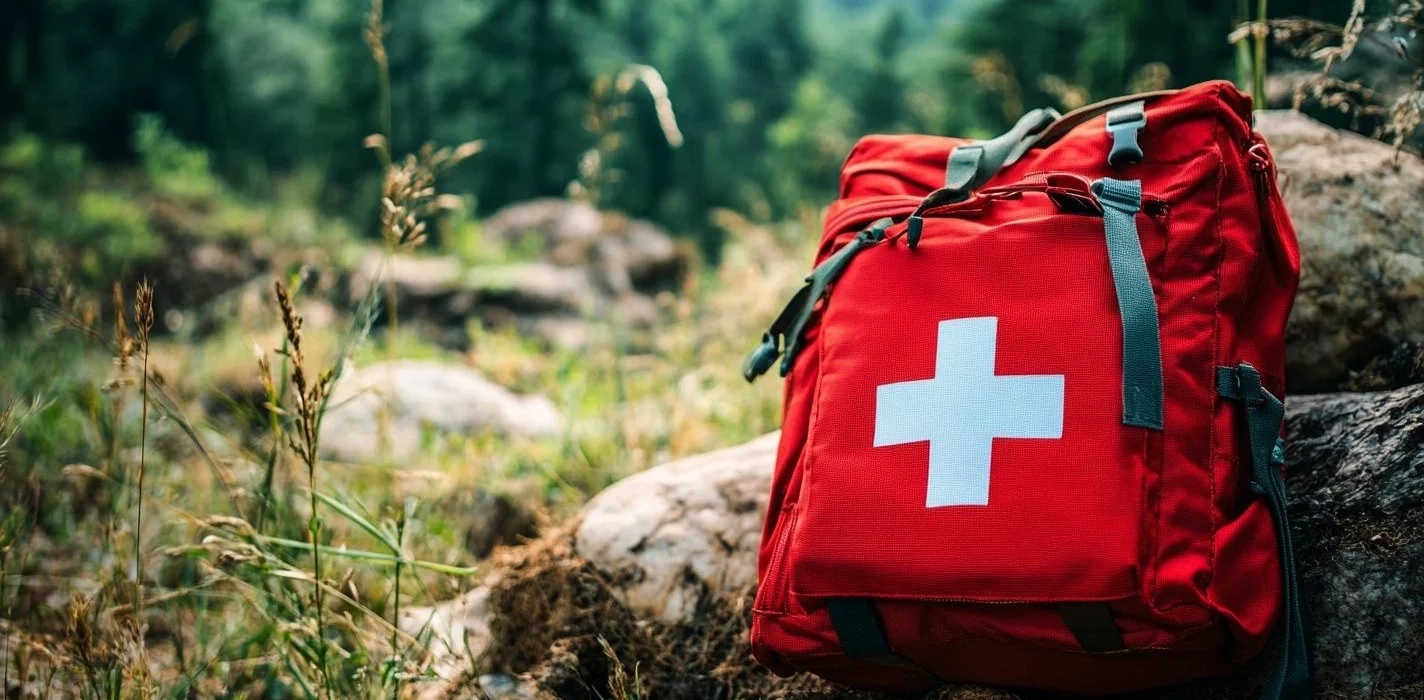
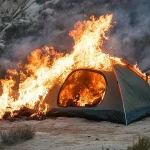
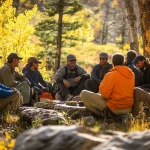
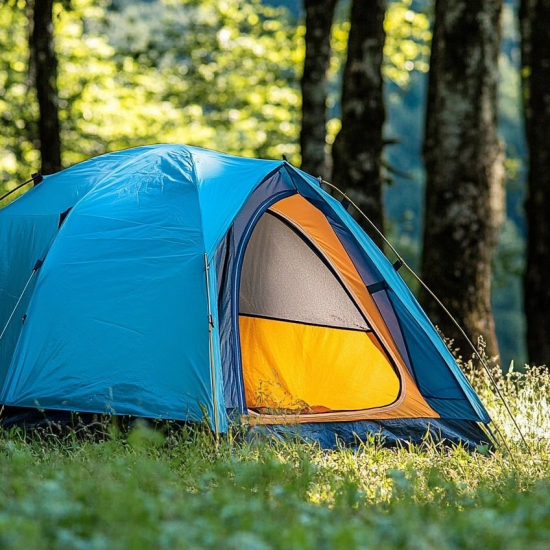
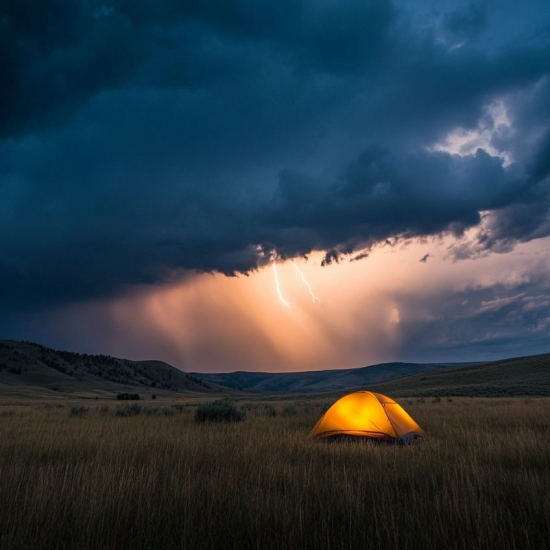
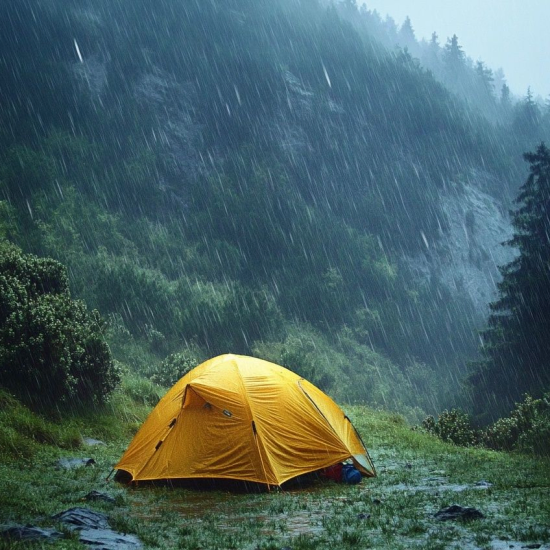
No Comment! Be the first one.